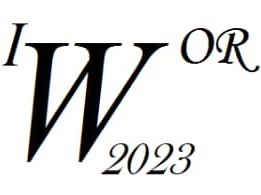Ponente
Descripción
Many automatic monitoring applications collect high-dimensional time-series data, but only a small number of components contain meaningful information, such as changes in the signal's average value. The rest of the components are just noise. In such a high-dimensional setting, where the useful signal is sparse, we have developed a new segmentation algorithm that identifies the informative components, which leads to more accurate segmentations. Our work focuses on detecting changes in the average of a multivariate signal. We propose a two-step approach inspired by sparse clustering. First, we construct a sparse weight vector that reduces the influence of non-informative components and thereby reduces the dimensionality of the time-series. In the second step, we compute candidate change points from the weighted time-series. Simulated examples demonstrate that our weighting procedure effectively reduces dimensionality and produces more relevant segmentations.

